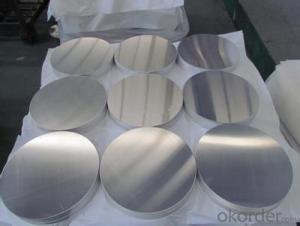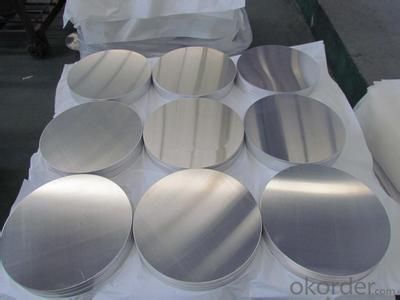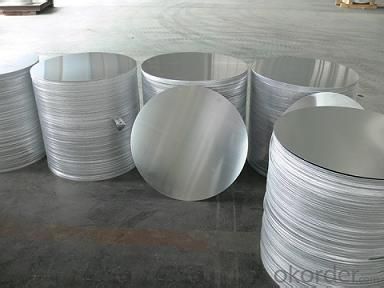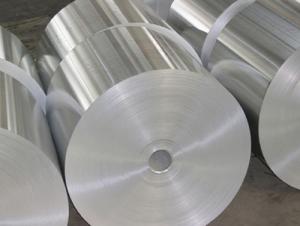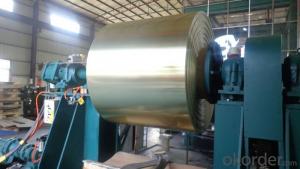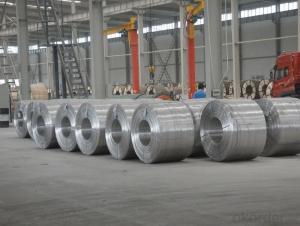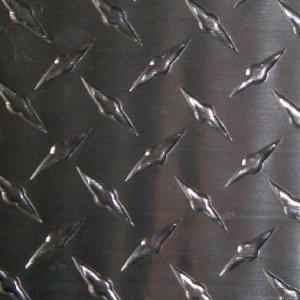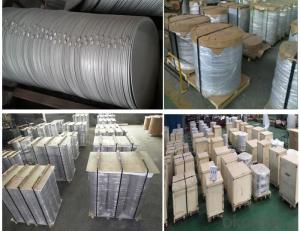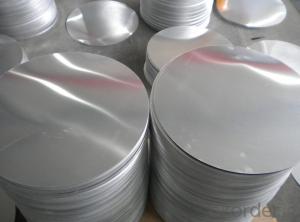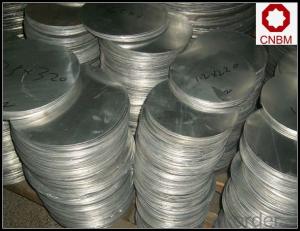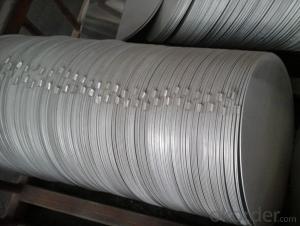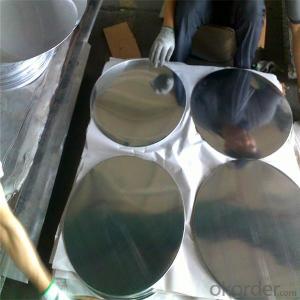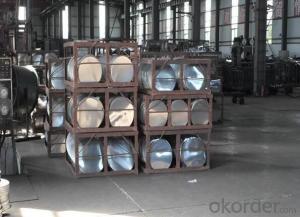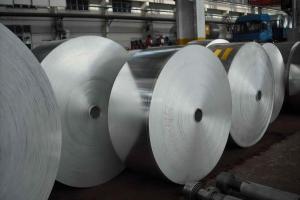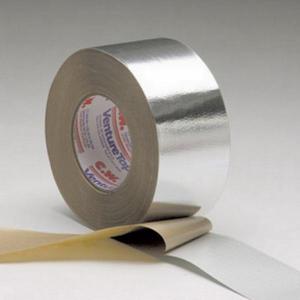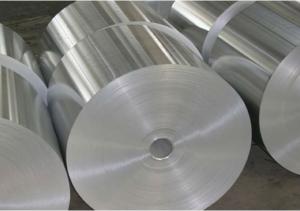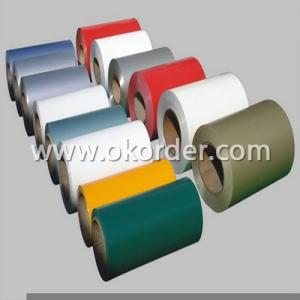Aluminum Circle Sheet DC CC for Cookware Pot Pan Kettle
- Loading Port:
- Shanghai
- Payment Terms:
- TT OR LC
- Min Order Qty:
- 1 m.t.
- Supply Capability:
- 5000 m.t./month
OKorder Service Pledge
OKorder Financial Service
You Might Also Like
Specification
Aluminum Circle Sheet DC CC For Cookware Pot Pan Kettle
Packaging & Delivery
| Packaging Details: | 25kg/carton-boxes(35*32*19CM) &Fumigation wooden-pallets (110*110*15cm) 20GP can loading 22 Ton,total 21 pallets,20 CBM. |
| Delivery Detail: | within 25 days |
Specifications
1).Excellent Surface Quality for lighting reflectors.
2).Excellent deep drawing and spinning quality.
3).Anodizing Quality
Aluminium circle/Aluminium discs/disks for cooking utensils Cookware
Aluminum disc Surface Finish: Bright & smooth surface, without flow lines, slightly oiled to avoid White rusting.Smooth,Brightly ,No Zone of Fracture ,No Scratched ,No oil Sludge
We enjoy a good reputation among our customers for our aluminum circle with high quality and competitive price, win high appreciation from our clients with the excellent workman-ship and professional ability. The quality matches with ISO 9001 quality management system.
It is equipped with 5 hot tandem rolling line, 4 cold mill production lines, 4 annealing surface machines and a complete finishing equipment.
Specification:
Alloy
Temper
Specification
Thickness
Diameter
1070,1050,3003,1100
O,H12,H14,H16
0.5-5.0mm
100-1200mm
Aluminum disc chemical Properties(WT.%)
Alloy
Si
Fe
Cu
Mn
Mg
Cr
Ni
Zn
Ca
V
Ti
Other
Min.A1
1050
0.25
0.4
0.05
0.05
0.05
-
-
0.05
-
0.05
0.03
0.03
99.5
1070
0.25
0.25
0.04
0.03
0.03
-
-
0.04
-
0.05
0.03
0.03
99.7
3003
0.6
0.7
0.05-0.2
1.0-1.5
-
-
-
0.1
-
-
-
0.15
96.95-96.75
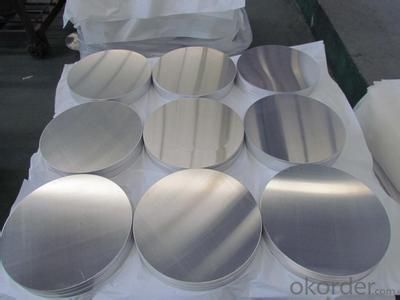
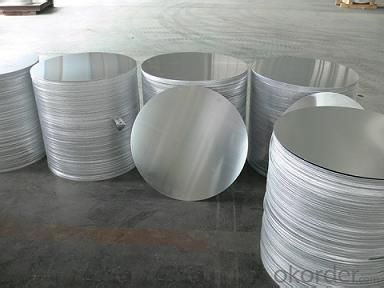
- Q: This question asks if there is a risk of lead contamination from old aluminum cans when they are recycled into new food containers.
- <p>There is no risk of lead leaching from old aluminum cans into food during recycling. Aluminum cans are made of aluminum and do not contain lead. The recycling process involves melting and re-forming the aluminum, which effectively removes any potential contaminants. Lead was used in some can linings in the past, but modern food cans are lined with non-toxic materials. Therefore, recycled aluminum cans pose no lead leaching risk to food safety.</p>
- Q: This question asks for everyday applications of aluminum foil.
- <p>Aluminum foil has various uses in daily life. It's commonly used for food storage, wrapping leftovers to keep them fresh. It's also used in cooking, such as covering dishes to retain moisture or creating packets for steaming foods. Aluminum foil is great for lining baking sheets to prevent sticking and making cleanup easier. It's also used for insulation, like wrapping pipes to reduce heat loss. Additionally, it's used for arts and crafts, shining surfaces, and even as a makeshift reflector for sunlight. Its versatility makes aluminum foil a staple in many households.</p>
- Q: This question asks about the various applications of aluminum in construction materials.
- <p>Aluminum is widely used in building materials due to its lightweight, high strength, and resistance to corrosion. It is commonly used in window frames, door frames, curtain walls, and roofing systems for its durability and low maintenance requirements. Aluminum is also used in structural components such as beams and columns, and in the manufacturing of prefabricated buildings. Its malleability allows for the creation of various shapes and designs, making it ideal for both functional and aesthetic purposes in construction. Additionally, aluminum's thermal conductivity and reflectivity properties make it suitable for energy-efficient building envelopes.</p>
- Q: This question asks for the current cost of aluminum.
- <p>The cost of aluminum fluctuates based on market conditions and can vary by region. As of my last update, the price of aluminum was around $2,500 per metric ton, but this is subject to change. For the most accurate and up-to-date pricing, it's best to check with a commodity exchange or a reliable financial news source. Prices can be influenced by supply and demand, economic indicators, and geopolitical factors.</p>
- Q: This question asks about the impact of aluminum on human health, including potential effects and health concerns.
- <p>Aluminum is a common element that can be found in various forms in the environment. While it is not considered an essential nutrient for the human body, it can be ingested through food, water, and medications. In small amounts, aluminum is generally considered safe and is excreted by the body. However, excessive exposure or intake can lead to potential health concerns. Aluminum has been linked to neurological disorders, particularly Alzheimer's disease, although the exact relationship is still a subject of debate. It can also cause bone disorders and affect kidney function. The human body has mechanisms to regulate aluminum levels, but individuals with impaired kidney function may be at a higher risk of aluminum toxicity.</p>
- Q: Is there a link between aluminum exposure and the development of dementia?
- <p>Aluminum has been a subject of concern regarding its potential link to dementia, particularly Alzheimer's disease. However, current scientific consensus indicates that there is no conclusive evidence to support the claim that aluminum causes dementia. Extensive research has been conducted, and the majority of studies have not found a direct causal relationship between aluminum exposure and the development of Alzheimer's or other forms of dementia. While aluminum is naturally present in the environment and can be found in some foods, water, and medications, the body typically does not absorb significant amounts, and any absorbed aluminum is usually efficiently excreted. It is important to continue monitoring scientific research for any new findings, but as of now, aluminum is not considered a proven cause of dementia.</p>
- Q: This question asks about the impact of aluminum on the aging process in living organisms.
- <p>Aluminum's effect on the aging process is a subject of ongoing research and debate. Some studies suggest that aluminum can accumulate in the body over time, potentially contributing to age-related diseases such as Alzheimer's. It is hypothesized that aluminum may interfere with cellular function, disrupt enzyme activity, and cause oxidative stress, which are all factors associated with aging. However, the exact mechanisms and the extent of aluminum's role in aging are not fully understood. It's important to note that the human body naturally has mechanisms to excrete aluminum, and the contribution of aluminum to aging is not conclusively proven. More research is needed to establish a clear link between aluminum exposure and the aging process.</p>
- Q: Is aluminum a material that can be utilized in medical or pharmaceutical applications?
- <p>Yes, aluminum is used in medicine and pharmaceuticals, primarily in the form of aluminum salts. It is used as an adjuvant in vaccines to enhance the body's immune response. Aluminum compounds are also used as antacids to neutralize stomach acid and in some medications as a buffering agent. However, its use is regulated due to potential health concerns, and it's important to note that aluminum is not used in direct contact with the body for extended periods due to its potential toxicity.</p>
- Q: This question asks about the impact of aluminum on human health when it is consumed through food packaging.
- <p>Aluminum is commonly used in food packaging due to its lightweight and durability. However, concerns have been raised about its potential health effects. Aluminum can leach into food, especially in acidic conditions, and be ingested by humans. While the body naturally excretes some aluminum, excessive intake may lead to accumulation, particularly in the brain, bones, and kidneys. Long-term exposure has been linked to neurological disorders, including Alzheimer's disease, and may contribute to bone diseases. However, the scientific consensus is not definitive, and more research is needed to establish a clear causal link. It's important to note that the risk is generally considered low for most people, but it's advisable to minimize exposure, especially for vulnerable populations like infants and those with kidney issues.</p>
- Q: This question asks for examples of alloys that include aluminum as one of their components.
- <p>Aluminum is a versatile metal that forms many alloys, enhancing properties like strength, corrosion resistance, and electrical conductivity. Some common aluminum alloys include: 1. 6061, used in aircraft structures and automotive parts due to its good mechanical properties and machinability. 2. 2024, known as 'Alclad', is strong and used in aircraft structures. 3. 7075, one of the strongest aluminum alloys, used in aerospace and military applications. 4. 3003, used for cooking utensils and chemical equipment due to its good corrosion resistance. 5. 5052, used in marine applications and food processing equipment for its excellent corrosion resistance. These alloys are widely used in various industries due to their unique properties.</p>
Send your message to us
Aluminum Circle Sheet DC CC for Cookware Pot Pan Kettle
- Loading Port:
- Shanghai
- Payment Terms:
- TT OR LC
- Min Order Qty:
- 1 m.t.
- Supply Capability:
- 5000 m.t./month
OKorder Service Pledge
OKorder Financial Service
Similar products
Hot products
Hot Searches
Related keywords
